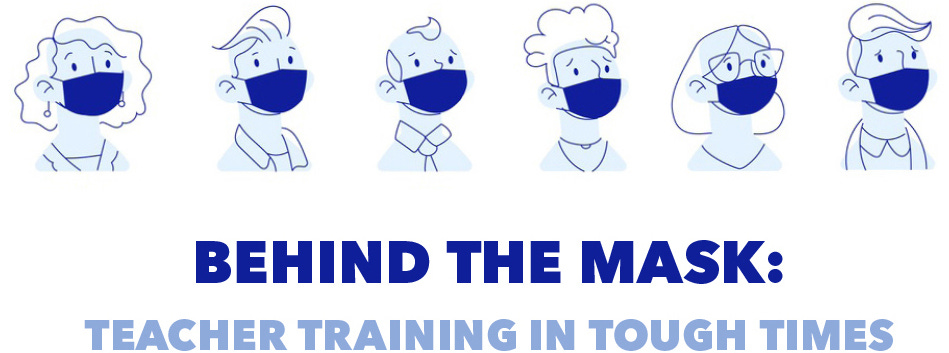Training in Tough Times (VII)
The biggest obstacle in my teacher training was literally performing ‘behind the mask’!
By Mai Trerattanavong (Thailand)
My teacher training was conducted in a private British curriculum international school situated in Bangkok, Thailand with over 1,600 students aged 18 months to 18 years-old. I was a Modern Foreign Language Japanese teacher trainee in the Language Faculty, given an opportunity to be engaged with around 60 students in Years 7, 8, and 9 in the Upper school for the period of 8 months.
I was fortunate to experience a good balance of both face-to-face and online teaching during my placement - despite the several national lockdowns in Thailand.
Although there are countless learning experiences for new teachers to be gained through online teaching, my reflection is on the challenges caused by the Coronavirus restrictions on in-person language learning classroom during the pandemic.
The biggest obstacle in my teacher training was literally performing ‘behind the mask’!
At the beginning of the course, teachers were allowed to wear face shields in classrooms, later, face masks became a requirement, aligned with whole school policy as restrictions tightened nationwide.
Wearing a mask caused common issues for all teachers: The constant need of raising our voice, a difficulty of hearing student’s voices, or of identifying their facial expressions
However, for language teachers they are also subject-specific challenges.
Most significantly, masks prohibit language teachers from showing appropriate mouth movement when pronouncing words - it’s hard to show the roll of a tongue or an open mouth to get around a troublesome sound when your face is covered.
When learning new vocabulary, observing the teacher’s mouth movement is as important as hearing and distinguishing the sounds of the word. Unfortunately, wearing a mask has made these tasks much more difficult for both teachers and students. My struggles continued for a while in Term 1, and one day, I suddenly came up with an idea of recording a short video in order to solve the problem. Clips were filmed sans mask (safely away from students and colleagues) and uploaded onto Google Classroom. Although the audio quality was not too good and the time lag was often disruptive, students were given a full opportunity to observe me speaking Japanese without a mask - proper mouth movements and all.
One of the most rewarding aspects of language learning is being able to communicate and connect with people from different countries and cultures. The ability to speak multiple languages opens up unique opportunities to successfully thrive in ever more diverse societies, surrounded by a wider range of people in our personal and professional lives.
However, international travel restrictions during the pandemic have kept us away from such joy, and seeing each other’s faces with masks on is a constant reminder of the dispiriting situation.
As a language department, recognising this challenge, numerous attempts were made to raise students’ enthusiasm and improve their engagement. For instance, Year 7 students made travel plans for future/imaginary trips to Japan, using their plans as the basis for writing assignments. Photographs of popular sightseeing spots were included in the instruction sheet, visually attracting student’s attention, interest and curiosity. The visits may have been ‘virtual’ and the trips imaginary, but it all helped to inspire the students - at least to high marks in the assignments and some to travel to Japan when things return to ‘normal’.
Even as we all start seeing the light at the end of the tunnel, nothing has yet been so assured. As teacher trainees, we should be determined not to give up on making efforts to improve our teaching in any circumstance. Whether it is a local issue or a worldwide pandemic. I believe we should not get discouraged and push through whatever hardship turns our way. Although Professional Development leads and gives us some tips, building up our own knowledge and experience is crucial to be a better teacher.
Symbolically, masks have come to represent the Covid-19 pandemic.
But, no matter whether with a mask or without, we should continue attempting to explore what works well and what doesn’t. After all, good teaching is good teaching - whether that’s behind a mask or face-to-face.
By Mai Trerattanavong (Thailand)
INTERESTED IN INTERNATIONAL SCHOOLING?
There’s a book!
Practical and easy-to-access, ‘International Schooling: The Teacher’s Guide’ provides insight into one of the biggest, and most exciting, career transitions and life adventures many teachers ever make.
Whether you are new to this world or experienced, this authoritative text introduces, examines and unpicks the highs, the lows, the perks and the pitfalls of international schooling.
For anyone aspiring to, new to, being recruited into, or currently enjoying international teaching, it is essential reading.







